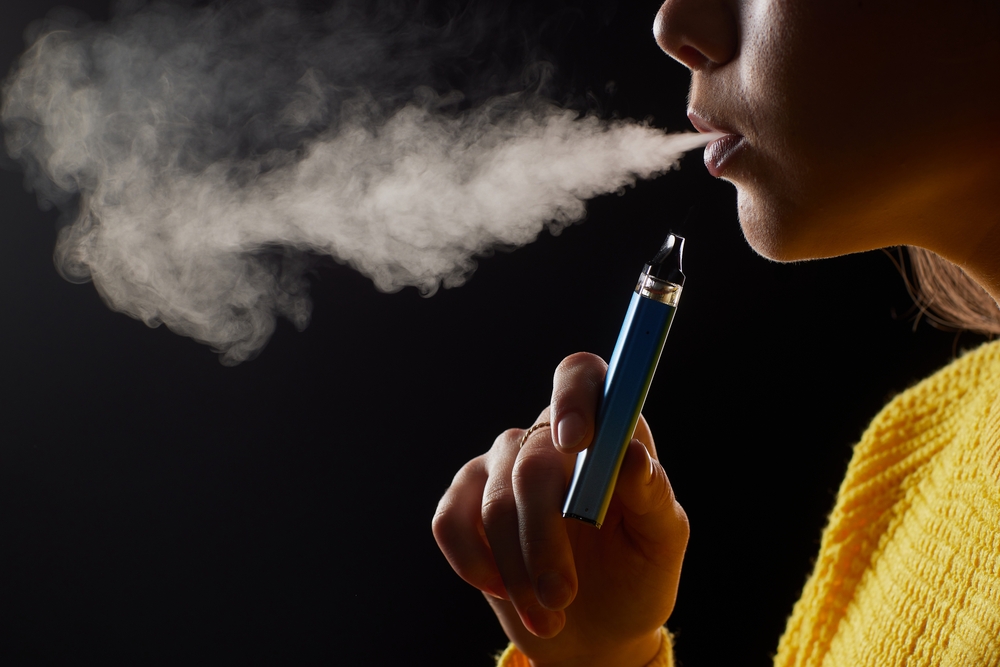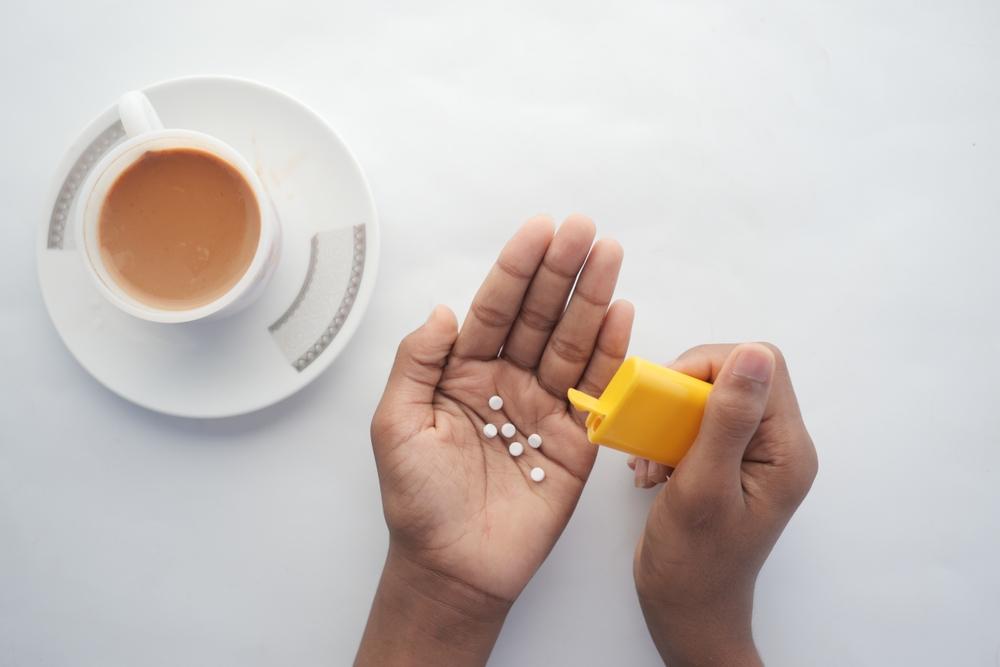In a world where wellness advice is as abundant as coffee shops in Brooklyn, it’s easy to get tangled in the web of cancer prevention myths. We’re here to sift through the noise and bring you the truth about what works and what doesn’t when it comes to this life-altering disease. Say goodbye to the old wives’ tales and hello to science-backed reality. Here are 13 myths that need busting, with some style.
1. Only Smokers Get Lung Cancer

It’s a common belief that lung cancer is exclusively a smoker’s burden, but that’s a myth that needs extinguishing. While smoking is the top cause, around 10-20% of lung cancer cases occur in non-smokers. According to Johns Hopkins Medicine, factors like exposure to radon gas, secondhand smoke, air pollution, genetics, and hormonal influences may contribute to lung cancer in non-smokers, especially women.
Genetics can also play a role in non-smokers developing lung cancer. It’s crucial for everyone, regardless of smoking status, to be aware of these risks and take preventative measures. Regular health check-ups and maintaining a healthy lifestyle can help catch potential issues early. So, don’t assume you’re in the clear just because you’ve never touched a cigarette.
2. Superfoods Have Superpowers

You’ve seen them on Instagram: acai bowls, kale smoothies, and goji berries, all promising to be your shield against cancer. But, contrary to popular belief, no single food holds the power to prevent cancer. The magic lies in maintaining a balanced diet rich in fruits, vegetables, whole grains, and lean proteins. According to the Mayo Clinic, it’s the cumulative effect of your overall diet and lifestyle that truly matters.
This doesn’t mean your kale salad isn’t doing wonders; it just isn’t a superhero on its own. Focus on variety to ensure you’re getting a spectrum of nutrients. This includes common kitchen staples like tomatoes and garlic, which contain cancer-fighting compounds. So, diversify your plate and enjoy those vibrant Instagram-worthy meals, just don’t expect them to be more than a part of the whole picture.
3. All Sun Exposure Is Bad

Yes, we’ve all heard that too much sun can lead to skin cancer, but let’s not throw shade on our beloved star entirely. Our bodies need sunlight to produce vitamin D, which is crucial for bone health and may play a role in cancer prevention. According to Healthline, a sensible amount of sun exposure—about 10 to 30 minutes a few times a week—can be beneficial.
Overdoing it is where the risk lies, so moderation is key. When planning a beach day, don’t forget your sunscreen with an appropriate SPF, hats, and shade breaks. This allows you to enjoy the sun without the harmful side effects. Remember, a little sunshine goes a long way!
4. Sugar Feeds Cancer

The idea that sugar directly feeds cancer is an oversimplification that has gained too much traction. While cancer cells consume more glucose than normal cells, no evidence that cutting out sugar will prevent or cure cancer. What’s important is maintaining a healthy weight, as obesity is a known risk factor for many types of cancer.
According to PubMed, excess sugar consumption can contribute to cancer development and progression through mechanisms like inflammation and metabolic changes, but the evidence does not support the notion that sugar alone “feeds” cancer or that eliminating sugar will stop cancer growth. It’s about balance—eliminating sugar can lead to unhealthy eating patterns and nutritional deficiencies. Instead, focus on reducing added sugars found in processed foods and beverages and aim for a diet that includes whole foods. Moderation and mindful eating are your best bets. Let’s sweeten life with knowledge, not fear.
5. Artificial Sweeteners Cause Cancer

The fear around artificial sweeteners causing cancer has been around for decades, largely stemming from early studies that have since been debunked. Modern research shows that sweeteners like aspartame, saccharin, and sucralose are safe for consumption and not linked to cancer in humans. According to the National Cancer Institute, extensive safety studies reviewed by the FDA have found no evidence that these approved sweeteners cause cancer or other harms in people1.
Still, it’s understandable to be cautious—consuming them in moderation is wise. If you’re concerned about additives, consider natural alternatives like honey or maple syrup, but remember these are still sugars. Balance is key when it comes to dietary choices. Don’t let old myths cloud your judgment or your coffee!
6. Cancer Is Always Hereditary

While genetics certainly plays a role in cancer risk, they aren’t the sole factor. Only 5-10% of all cancers are due to inherited genetic mutations. Lifestyle choices and environmental factors often have a more significant impact. This means that even if your family has a history of cancer, you have the power to influence your risk through healthy habits.
Genetic testing can be a valuable tool for those with a strong family history, helping to tailor preventive measures. However, it’s not a definitive prediction of cancer development. Embrace a proactive approach to your health, regardless of genetics. You can write your own story with the choices you make daily.
7. Cell Phones Cause Brain Cancer

The link between cell phones and brain cancer has been a topic of debate for years. However, current research, including extensive studies from the National Cancer Institute, shows no convincing connection between the two. The radiofrequency energy emitted by cell phones is non-ionizing and not strong enough to damage DNA or cells.
While it’s wise to limit unnecessary exposure, such as not sleeping with your phone under your pillow, the fear of brain cancer shouldn’t keep you from using your devices. Use speakerphone or earbuds if you’re concerned about holding your phone to your ear for long periods. Stay informed with scientific evidence rather than sensational headlines. Your phone isn’t the enemy.
8. All Plastics Are Dangerous

Concerns about plastics, particularly those containing BPA, have been widespread, but not all plastics are created equal. BPA, found in some plastics, can mimic estrogen and has been linked to health issues. Yet, most studies do not support a direct link to cancer. Many manufacturers have responded by creating BPA-free products, reducing potential risks.
That said, using plastics safely is still important. Avoid heating food in plastic containers and opt for glass or stainless steel when possible. Look for recycling codes 1, 2, 4, and 5, which are generally considered safer. Balance safety with practicality and make informed choices without jumping to extremes.
9. Stress Causes Cancer

Stress, while unpleasant, is not a direct cause of cancer. The idea stems from the fact that stress affects the immune system, which can influence cancer progression. However, no scientific evidence points to stress as a direct cause of cancer. What stress can do is lead to unhealthy behaviors, like smoking or overeating, which indirectly increase cancer risk.
Managing stress is important for overall well-being, but don’t add to your stress by worrying that it will cause cancer. Techniques like yoga, meditation, and regular exercise can improve mental health and help mitigate stress. Focus on what you can control, and let go of unfounded fears. Keep calm and carry on with healthy habits.
10. Detox Diets Prevent Cancer

Detox diets are often touted as vital cancer prevention tools, but the body has its detoxification systems in the liver and kidneys. There’s no scientific evidence that detox diets prevent cancer. Extreme detoxing can lead to nutritional deficiencies and other health issues. The best “detox” is a healthy, balanced diet and plenty of water.
Rather than extreme measures, focus on long-term dietary patterns that support your body’s natural functions. Whole foods, fiber, and hydration promote health without the need for fasting or expensive cleanses. Treat your body like the temple it is, but skip the detox fads. Nourishment, not deprivation, is the key to prevention.
11. Cancer Is a Death Sentence

A cancer diagnosis is indeed serious, but it’s not always the end of the road. Advances in research and treatment have significantly improved survival rates for many types of cancer. Early detection and modern therapies mean many people go on to live long, fulfilling lives after diagnosis. Hope and positivity play a critical role in the journey.
The stigma around cancer needs to shift, encouraging more open conversations and support for those affected. Early screening and awareness are powerful tools that can make a life-saving difference. Celebrate the victories in cancer research and the resilience of survivors. With knowledge and support, cancer can be faced with courage.
12. Wearing Underwire Bras Causes Breast Cancer

This myth has circulated widely, but there’s no scientific basis to support it. The idea that underwire bras obstruct lymph flow and lead to breast cancer has been debunked by multiple studies. Organizations like the American Cancer Society confirm there is no link between bra type and breast cancer risk. Comfort, not cancer, should guide your choice of lingerie.
If you’re concerned about breast cancer, focus on proven risk factors, such as maintaining a healthy weight and limiting alcohol consumption. Regular self-exams and mammograms are key for early detection. Your lingerie drawer isn’t the cause of cancer, so wear what makes you feel fabulous. Support comes from awareness and action, not underwire.
13. You Can’t Do Anything To Prevent Cancer

The belief that cancer is purely a matter of fate is disempowering and inaccurate. While not all cancer cases are preventable, lifestyle choices can significantly reduce risk. Eating a balanced diet, staying active, and avoiding tobacco are effective preventative measures. Engaging in regular screenings and vaccinations, like the HPV vaccine, also plays a crucial role.
Empowerment comes from knowledge and action. Small, daily choices add up to a significant impact over time. Take charge of your health and embrace proactive habits. Cancer prevention is a journey, and every step you take matters.

Abisola is a communication specialist with a background in language studies and project management. She believes in the power of words to effectively connect with her audience and address their needs. With her strong foundation in both language and project management, she crafts messages that are not only clear and engaging but also aligned with strategic goals. Whether through content creation, storytelling, or communication planning, Abisola uses her expertise to ensure that her messages resonate and deliver lasting value to her audience.


